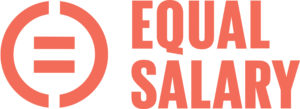Unconscious biases can creep in and impact our everyday decisions and interactions, even when we are 100% committed to equality. For those responsible for recruitment and selection, it’s imperative to have a strategy that aims to prevent gender bias.
In your mind, how do you picture the characteristics of a typical CEO? We will all have our own ingrained biases in response to this question.
You may be thinking dominance and emotional toughness are common in a CEO. It doesn’t mean you believe that makes a good CEO or that it’s all they can be. However it might mean you are still unconsciously looking for those traits during the recruitment process and limiting your search to males without even realising.
Biased thinking leads to biased decision making. That’s why it’s so important to have a hiring process that helps to eliminate gender bias.
Interestingly, jobs where males are the majority of the workforce are especially prone to gender discrimination in the hiring process. For instance, in more male-dominated roles (more than 65%) such as CEO, IT Consultant, or Police Officer, the research confirms that we tend to select male applicants.
In other words, female applicants have less chance of getting hired because of their gender. By contrast, gender preference seems not to occur for female-dominated roles (more than 65%) like Journalist or Nurse. (Source: Future For Work)
Ensuring a fair and unbiased recruitment process has a positive effect on your entire business. A recent study conducted by UC Davis revealed that out of the 400 companies who took part, those who have a high percentage of female executives have a 74% higher return on assets and equity. Overall, companies are 15% more likely to perform better if they are gender diverse. (Source: WES)
Here are 10 tips to help you reduce gender bias in the recruitment process:
1. Set Diversity Goals
Firstly, you should not be employing anyone simply as a tick-box exercise. We want to make that very clear! However it’s a good idea to set realistic gender diversity targets to help you stay on track and identify any problem areas in the recruitment process that may affect those goals.
2. Make Your Advert Accessible
Consider where you are placing your recruitment adverts. Take a look at your current recruitment channels. Who is reading and accessing them? If it’s on a website, is the readership evenly split in terms of gender? Make an effort to ensure your job postings are reaching a variety of candidates.
3. Be Strict About What’s ‘Required’
Think critically about what is really ‘required’ in a successful candidate for the role, and challenge your own thinking. You’ll want to make sure that you leave room for flexibility and allow individuality from the candidate. Desired criteria should be described as ‘preferred.’
4. Write Gender-Neutral Job Descriptions
Examine language in job announcements for bias. Does the language subtly reflect stereotypes? Certain phrases that are written in job adverts can deter high-quality candidates from applying for the position. Recruitment platform totaljobs analysed 77,000 job adverts and found 478,175 words which carried gender bias. That’s an average of 6 male-coded or female-coded words per job advert. Read their advice on How to identify unconscious bias in job adverts.
5. Scrutinise Evaluation Tools
What tools are you using to evaluate applications? You’ll need to ensure that any automatic elimination criteria are in line with what’s ‘required’ and not ‘desired’ for the role.
6. Anonymise Applications
Anonymising applications will allow you to ensure that you are evaluating each CV in exactly the same way, without being influenced by gender. It helps you to score them objectively. This is something you will need to consider in advance of receiving applications, so that you can put an appropriate process in place. Read more about this in Harvard Business Review.
7. Standardise The Interview Process
One clear way to reduce bias during interviews is to have a structure with standardised questions that you ask every candidate. This makes it easier to directly compare candidates, and stops your biases from offering them more or fewer opportunities. You should also identify your preferred answers to each question before you start the first interview.
8. Use A Diverse Panel
If you are using a panel to conduct interviews, electing a gender diverse panel can help to reduce the risk of unconscious gender bias. Ideally you will take this further and also have diversity in age, culture, background, etc.
9. Question Yourselves
Sometimes we make instant judgements and statements without enough thought or study into our motivations and biases. If you or members of your panel are saying things like “they just aren’t the right fit” then it’s important to question why and dig deeper. There will be multiple, equally acceptable, definitions of what’s “right.”
10. Take Your Time
Making quick decisions based on ‘instinct’ is one way to almost guarantee that biases are involved. Reduce distractions and time pressures as much as possible to ensure that each candidate is receiving equal attention and consideration.
—
The EQUAL-SALARY certification is a process that allows companies to verify and communicate that they pay their female and male employees equally for the same job or for a job of the same value.
It’s a chance for organisations to put their values into action. To prove their commitment to equal pay for all.
If you want to get EQUAL-SALARY certified, join the cause, become an ambassador or would just like to learn more, please get in touch.



